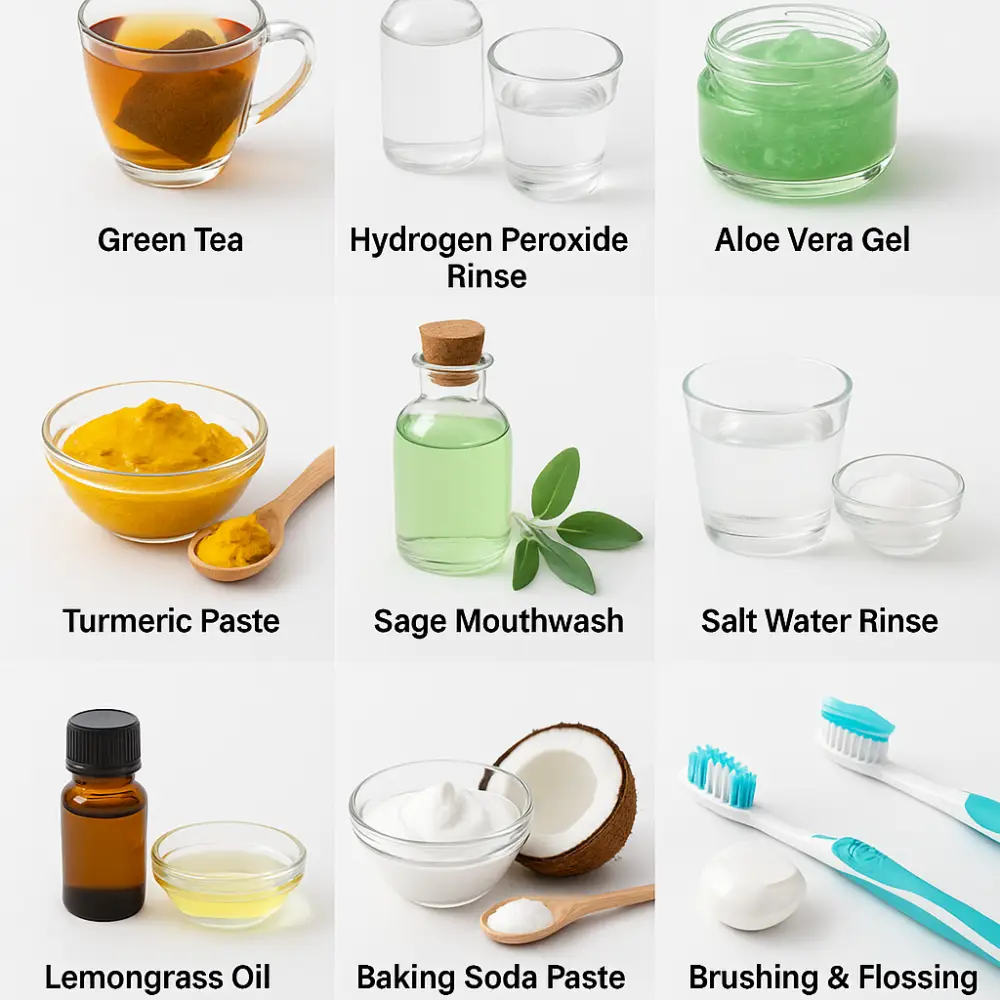Many adults ignore the early signs of gum disease, often because of the high cost of dental care or lack of awareness. But untreated gum disease can be dangerous—not only for your teeth but also for your overall health. This article will explain how to cure gum disease without a dentist using home remedies, why professional care is still essential, and answer the common concern: can gum disease kill you?
What Is Gum Disease?
Gum disease, or periodontal disease, begins when bacteria in the mouth form a sticky film called plaque. This irritates and inflames the gums, leading to symptoms such as swelling, bleeding, and tenderness. Left untreated, gum disease progresses from gingivitis (mild) to periodontitis (severe), where bone and connective tissue are destroyed, causing tooth loss and systemic health risks.
Can Gum Disease Kill You?
While gum disease itself does not directly cause death, the bacteria and chronic inflammation associated with it can spread to the bloodstream and other organs. Research shows links between gum disease and heart disease, stroke, diabetes, and respiratory infections. If untreated, gum infections increase the risk of serious complications, which in extreme cases may contribute to life-threatening conditions. This is why gum disease should never be ignored.
How to Cure Gum Disease Without a Dentist (Home Remedies)
Although professional treatment is the gold standard, you can try these home remedies to help control mild gum disease symptoms until you are able to see a dentist. Consistency is key: the earlier you act, the better chance you have of reversing early-stage gum disease.
- Green Tea: Rich in antioxidants that reduce inflammation and limit bacterial growth. Consider drinking 1–2 cups daily.
- Hydrogen Peroxide Rinse: Dilute a 3% solution with equal parts water and swish for 30 seconds to kill harmful bacteria. Works well with a water flosser.
- Aloe Vera Gel: Apply pure aloe vera gel directly to inflamed gums to reduce bleeding and promote healing.
- Turmeric Paste: Natural anti-inflammatory and antimicrobial spice. Apply as a paste or take as a supplement.
- Sage Mouthwash: Boil fresh or dried sage in water to make a rinse that reduces plaque and calms swollen gums.
- Salt Water Rinse: A natural disinfectant that helps reduce swelling and promotes healing of gum tissue.
- Lemongrass Oil: A few drops diluted in water act as a potent antibacterial rinse.
- Baking Soda Paste: Neutralizes acids, fights bacteria, and helps whiten teeth naturally.
- Coconut Oil Pulling: Swish with coconut oil for 10–15 minutes daily to reduce bacteria (limited scientific evidence, but widely practiced).
- Brushing & Flossing: Still the most effective way to disrupt plaque and prevent progression of gum disease.
Warning Signs You Shouldn’t Ignore
If you notice any of the following, home remedies may not be enough and you should seek professional care:
- Persistent bleeding gums despite self-care
- Loose or shifting teeth
- Pain when chewing
- Receding gums exposing tooth roots
- Chronic bad breath (halitosis)
Why Professional Dental Care Is Still Essential
Even if you follow every home remedy, gum disease can progress beyond your control. Dentists and hygienists use scaling, root planing, and sometimes antibiotics or surgery to stop the disease from destroying bone and connective tissue. Combining home remedies with professional treatment is the safest way to protect your teeth and overall health.
Final Thoughts
Learning how to cure gum disease without a dentist gives you valuable tools for prevention and early management. But gum disease is not something to take lightly—especially since research shows strong links to systemic diseases. If you’ve ever wondered, “can gum disease kill you?”, the answer is that untreated gum infections can indeed contribute to serious, even life-threatening conditions. Protect your health by combining consistent oral hygiene with regular dental visits for long-term success.
Disclaimer: This article is for educational purposes only. Home remedies may help manage symptoms, but they are not a substitute for professional dental care. Always consult a dentist for diagnosis and treatment of gum disease.

